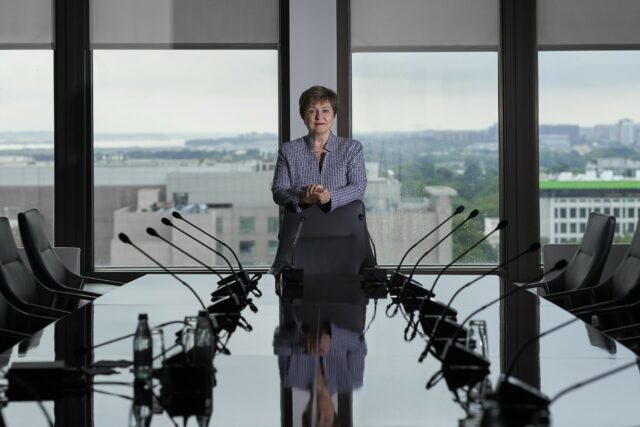Great start for BBM administration

Not even an eternal optimist like me expected that the Philippine GDP would grow by 7.6% in the third quarter of 2022, what with inflation exceeding 7% and many alarmists talking about the Philippine peso reaching “senior citizen” levels (meaning more than P60 to $1).
After Philippine GDP grew at more than 7% for six consecutive quarters, peaking at 12.2% during the second quarter of 2021, the majority of economic forecasters expected a median figure of 6.1% (I forecasted 6.5% myself). The first quarter of the existence of the administration of President Ferdinand Marcos, Jr. produced a hefty rate of 7.6%, surpassed only by India and Vietnam in the Indo-Pacific region.
As reported by Dr. Dennis Mapa, Undersecretary and Head Statistician and Civil Registrar General, the main contributors to this robust growth were wholesale and retail trade (evidence of “revenge spending”), repair of motor vehicles and motorcycles (“revenge traveling”) at 9.1% growth; financial and insurance activities, 7.7%; and construction, 12.2% (continuation of the Build, Build, Build activities of both the public and private sectors).
The three major economic sectors, i.e., agriculture, forestry and fishing, industry, and services all posted positive growth rates in the third quarter of 2022 with 2.2%, 5.8%, and 9.1% respectively. Especially notable is the 2.2% growth of agriculture, a sector notorious for negative growth rates in the past decade or so. Although there is no reason to be complacent, this respectable growth rate of agriculture (even the agribusiness behemoths of the ASEAN such as Thailand and Vietnam can grow their agriculture sector only at an average of 2-3% yearly) shows that the President as Secretary of Agriculture has started on the right foot. He just has to make sure that we maintain an average of 2-3% yearly growth of agriculture to contribute to even an 8-10% annual growth of GDP during his tenure.
This high rate of growth is attainable if, together with agriculture growing at 2-3% yearly, the present administration can partner closely with the private sector to increase our rate of investment from the historically low 20-22% of GDP to the more than 30% attained by our East Asian neighbors. This can be done if during the next six years, we can bring up Foreign Direct Investments (FDIs) to a level of $20 billion yearly, an amount that Vietnam has already reached. With the amendment of the Public Service Act and the very visible aggressive campaign of President Marcos Jr. to travel all over the world appealing to foreigners to come and invest in the Philippines, it is possible to attain this level of FDIs.
It is also significant that on the demand side, as Dr. Mapa reported, Household Final Consumption Expenditure grew by 8% in the third quarter of 2022. This highlights the importance of having a young and growing population of 112 million consumers who constitute the main engines of growth of the economy. Now that we can feel comfortable that the pandemic is behind us (without throwing caution to the wind by still retaining some of the safeguard measures such as wearing masks in very crowded places), we can continue to rely on consumer spending to help us grow at an average of 6-7% as a minimum.
There is no question that, as President Marcos Jr. emphasized in his recent trip to Cambodia, the strongest appeal to investors, whether domestic or foreign, is the large domestic market we now have, thanks to a fertility rate that is still above the replacement of 2.1 babies per fertile woman. In fact, I suspect that this is the greatest attraction to Elon Musk to be bullish in getting Starlink to invest heavily in the Philippines. Musk is one of the most vocal business leaders about the need to combat demographic decline which is threatening the whole developed world and even China, which has not yet reached First World status. The major role of consumption in helping us attain a high GDP growth rate convinces me that we shall see the fourth quarter GDP still growing at over 7%, despite high inflation (at least 5-6%). I forecast consumption to grow even more than 8% during the fourth quarter as a result of consumer spending related to the Christmas season.
Where will the money come from for consumers to spend? I see at least two major sources: remittances of OFWs (overseas Filipino workers) that will grow at more than 5% in the last quarter, as well as the foreign exchange earnings of the BPO-IT (business process outsourcing-information technology) sector that is enjoying a boom because of its ability to quickly adjust to work from home (WFH) modes of servicing their clients, both here and abroad. I also see the large corporations in the developed countries of North America and Europe trying to fight recessionary forces in their respective regions by outsourcing more and more of their online services to countries like India and the Philippines. In fact, I was so impressed with the bullish stance I perceived among the leaders of the BPO-IT industry who announced in a recent conference they had in Boracay that they hope to add one million more workers to their sector between now and 2028.
These two foreign exchange earning sectors are among those who are happy that the peso is depreciating vis-à-vis the US dollar. That means more purchasing power for the relatives of the OFWs and workers in the BPO-IT sector — higher incomes can partly compensate for the higher prices of consumer goods. In the New Year, consumers will get some relief from the lower rate of inflation expected, i.e., 4-5%, as the Central Bank turns very hawkish in increasing policy rates to over 5% to match the increases in the policy rates in the US. I see our Central Bank having enough tools to succeed in inflation targeting as our monetary authorities manifested during the two episodes of inflation in the last 20 years. In 2008, inflation rose to 8.26%; the year after, 2009, inflation was brought down to 4.2%. Then 10 years later, with another round of high inflation in 2018, which the Central Bank was able to bring it down to 2.4% the year after. If there is one institution, we can count on to do its job of inflation targeting, it is the Philippine Central Bank, whose Governors have been systematically rated as among the best in the world for at least the last 20 years.
On the demand side, there is clearly a sector that will be a drag to GDP growth — Government Final Consumption Expenditures which grew only at 0.8% for obvious reasons.
The government is buried deeply in debt incurred during the pandemic and can hardly be an engine of growth for at least the next two years. Even the high growth of gross capital formation to which government infrastructure spending made a significant contribution, may slow down if we depend too much on the continuation of the Build, Build, Build program of the Duterte administration. Continuous growth of this item on the demand side can only be assured by greater investments from the private sector in the Build, Build, Build program through Public-Private Partnership (PPP) projects and, more importantly, as already indicated above, from FDIs in such sectors as airports, railways, subways, telecommunications, energy, and other public services that can now be owned 100% by foreigners, thanks to the amendment of the Public Service Act. The role of the government in infrastructure building should be in endowing the rural and agricultural sectors with more farm-to-market roads, irrigation facilities, and other public services badly needed by the farmers to improve their productivity.
I would like to point out, however, that the present administration cannot claim all the credit for the good performance in its first quarter of being in power. Much of the resilience of the Philippine economy during these times of global economic crisis should be attributed to more than 30 years of slow but sure institution building (such as those we have seen in the Central Bank, the National Economic and Development Authority, the Department of Finance and its subsidiaries, the Department of Trade and Industry, etc.) that some of our most competent and honest officials were able to deliver. The current success can also be attributed to a good number of major economic reforms that corrected some serious mistakes in economic policy in the last century (inward-looking, protectionist industrialization measures, unrealistic foreign exchange rates, almost criminal neglect of rural and agricultural development, among others).
Our present leaders should also be thankful for the advantages the Philippine economy derives from its demographic dividend (a young, growing, English speaking population); geographic dividend (being at the epicenter of the most dynamic economic region in the world today that has not turned anti-globalization); and the temporal dividend (being at the stage of transitioning from a low-middle income to an upper middle income country in the next few years, a stage of income growth that will result in an explosion of demand for more sophisticated consumer goods and services.)
Humbly recognizing those favorable conditions being given to them on a silver platter, our leaders today can better chart our economic future by building on our strengths and removing our weaknesses or at least making them irrelevant.
Bernardo M. Villegas has a Ph.D. in Economics from Harvard, is professor emeritus at the University of Asia and the Pacific, and a visiting professor at the IESE Business School in Barcelona, Spain. He was a member of the 1986 Constitutional Commission.











